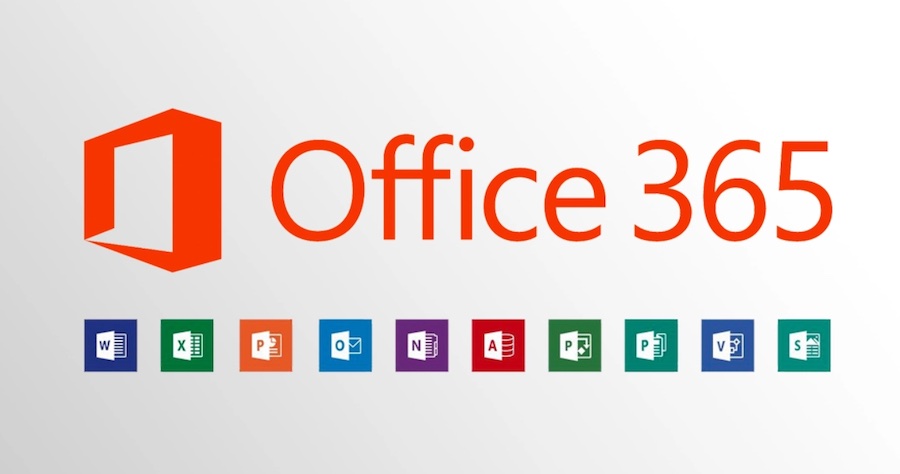When it comes to backing up your Office 365 data, don’t think twice. You may say: “My data is in the cloud, therefore, it’s safe.” True, your data in the cloud is safer than on your physical machine. However, it’s vulnerable to human-error and security threats. Needless to say, your Office 365 requires a third-party backup and here is why.
1. Data protection is your responsibility
You may think that your Office 365 data is entirely safe because it’s located in the cloud. It’s true that your data is relatively safe in the cloud. However, it’s not as safe as you might want to believe. The truth is that the cloud data is vulnerable to cyber threats and intentional and accidental deletions. You may ask the question: Does Microsoft guarantee the security of my data in the cloud? Microsoft approaches the data safety question by presenting the Shared Responsibility Model. Based on this model, Microsoft is responsible for providing virtualized services to its customers worldwide. In addition, Microsoft offers limited native data protection features. However, Microsoft doesn’t take responsibility for your data across the platform and devices. On the contrary, it’s up to you to keep your data safe in the cloud. Therefore, your task is to find efficient third-party backup software to protect your data around the clock.
2. Errors in Microsoft’s retention policies
Office 365 has retention policies that prevent data from being permanently deleted. You can recover emails, messages, files, and objects from the recycle bin within a specified timeframe. Retention policies enable you to preserve or delete your content. You can set up schedules and delete specified objects automatically. You can also retain items for an indicated period of time or indefinitely. But, guess what? Setting up retention policies is a tedious task. Administrators spend a lot of time on creating smart retention policy algorithms. In addition, once your policies are set, you may need to update them consistently to achieve efficient results. The retention policy setup can take a long time and requires extra attention from the administrator. Because of this, it’s prone to human error. Mistakes or retention policy gaps are often the reason for permanent data loss. If an item gets deleted, and it’s passed the retention policy period, you can only recover it from a third-party backup.
3. Litigation hold shortcomings
From time to time, management can ask you to preserve a document or file for a legal case. In other words, you can place certain information on litigation hold. It can be a Word document, an email, or a message in Skype that needs to be on hold. Backing up the litigation hold data can address human error or deletion issues. For example, you can accidentally delete a litigation hold or replace it with the wrong information. You can also unintentionally put the wrong content on hold. But sometimes you don’t even know that certain content could end up on litigation hold. Therefore, you need to run continuous backups of your Office 365 data.
4. A mailbox archive cannot serve as a backup
An archive is an additional storage space. You can move your old email messages to the archive to clear your mailbox. Emails older than two years are shifted to the archive by default. Keep in mind that archive is not a substitute for a backup. Similar to your mailbox, your archive data may be deleted or attacked by a hacker. On the other hand, third-party backups offer you a secure solution for managing and storing your data. A 3-2-1 approach enables you to keep your backups in a safe location, inaccessible to unauthorized users or hackers.
5. Compliance with laws and regulations
As a business, you may need to store data to be compliant with Health Insurance Portability and Accountability Act (HIPAA), Payment Card Industry Data Security Standard (PCI DSS), or General Data Protection Regulation (GDPR). You can use Office 365 retention policy to maintain your data. But, if you go over the limit and retain too much data, you will be charged extra — your expenses could go through the roof! Backups, however, can help you preserve all your critical data continuously at an affordable price.
6. Security vulnerabilities in the cloud
Your data in the cloud is vulnerable to security threats. A disgruntled insider who has privileged access to your business accounts can delete your critical data. Ransomware is another huge threat that can compromise your Office 365 account. You can inadvertently activate ransomware via a phishing email. As a rule, ransomware attacks your physical machine first, and then it makes its way to the cloud. If your computer files are infected with ransomware, and they are synchronized with OneDrive, your OneDrive files will end up infected, as well. You can also grant direct access to your OneDrive account by giving access to a third-party application from your email, for example, a security app. Microsoft offers native data protection against ransomware; however, it’s not always effective. Ransomware can permanently delete data from your physical machine and OneDrive. If you can’t recover your data with Microsoft’s native tools, backups are your last resort to get your data back.
7. Possibility of point-in-time recovery
Office 365 allows you to have several versions of your document. However, those versions are part of a saved file. Therefore, if the document is deleted, all of the versions are deleted, as well. On the other hand, a third-party backup solution allows you to have multiple recovery points of your file. You can choose any point in time to restore the document that you need. A modern third-party backup solution can offer up to 4,000 recovery points that you can rotate daily, weekly, monthly, or yearly based on the grandfather-father-son (GFS) model. The GFS rotation model implies that old recovery points are replaced with new ones. Because of this, the GFS model is a great storage-saver.
8. Backups from a single pane of glass
As we have already mentioned, setting up retention and native data protection policies is not an easy task; it requires high-tech administrative skills. On the other hand, a modern third-party backup solution can provide you all the necessary data protection services from a single pane of glass. This means that you can schedule and manage your backup and recovery jobs via a convenient user interface with a dashboard.
We have gone over important reasons for backing up your Office 365. Now let’s discuss what we need to pay attention to when choosing backup software. Numerous Office 365 backup solutions are available on the market. So how do you select the one that fits your unique needs? Let’s review the main points to consider when picking a backup solution for your Office 365.
1) Coverage
Get support for all applications that you currently have or will use in the future. For Office 365, ensure backups of Exchange Online, OneDrive for Business, and SharePoint Online.
2) Management
Schedule and manage your backup tasks from a simple user interface. Perform automated backups and restore your files, documents, contacts, and calendars with a few clicks.
3) Search
Find the required backups with an advanced search tool. Quickly find separate files, texts, objects, and images to perform granular recovery.
4) Access
Set up a role-based access control (RBAC) to protect your Office 365 from unauthorized users. RBAC enables only the assigned staff to run and manage backup and recovery jobs.
5) Recovery
Perform full or granular recovery of your Exchange Online, OneDrive for Business, and SharePoint Online. Restore your data to the original location or any other account.
6) Performance
Maintain a speedy and error-free backup and recovery environment that can function with minimum supervision.
7) Scalability
Protect thousands of users in a single Office 365 deployment. Paying per user saves you costs and provides you with the services you need.
8) Safety
Follow the 3-2-1 approach and store your data on-premises in addition to your cloud storage. On-premises storage ensures extra security and quick recoverability of your data.
Conclusion
Now you know why you need to back up your Office 365 and the main points to consider when choosing your Office 365 backup solution. Keep in mind that Microsoft has limitations when it comes to data protection. A comprehensive backup solution offers all-in-one data protection from a single pane of glass.
Disclosure: We might earn commission from qualifying purchases. The commission help keep the rest of my content free, so thank you!




